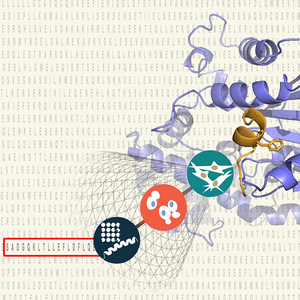The Garcia-Marcos lab has recently published two studies in the Journal of Biological  Chemistry on the topic of heterotrimeric G protein signaling. Marcin Maziarz, a postdoctoral fellow in the Garcia-Marcos lab, is the first author in both of them. The first study, which was selected as an Editors’ Pick, describes a novel pipeline for the discovery and validation of G protein activators that are not GPCRs, which are the “classic” G protein activators. By screening candidate cytoplasmic proteins containing a putative Gα-binding-and-activating (GBA) motif and using various in vitro and cell-based assays, the lab identified PLCδ4b as a new non-receptor G protein activator.
Chemistry on the topic of heterotrimeric G protein signaling. Marcin Maziarz, a postdoctoral fellow in the Garcia-Marcos lab, is the first author in both of them. The first study, which was selected as an Editors’ Pick, describes a novel pipeline for the discovery and validation of G protein activators that are not GPCRs, which are the “classic” G protein activators. By screening candidate cytoplasmic proteins containing a putative Gα-binding-and-activating (GBA) motif and using various in vitro and cell-based assays, the lab identified PLCδ4b as a new non-receptor G protein activator.
In the second study, the lab interrogated the mechanism of action of mutant G proteins known to drive uveal melanoma, a cancer of the eye which lacks effective therapies. Interestingly, they found that one frequent mutation, Q209P in the G protein Gαq, leads to G protein activation through a unique and unanticipated mechanism that could be leveraged to develop novel therapeutics for this cancer type.